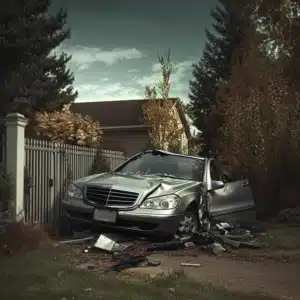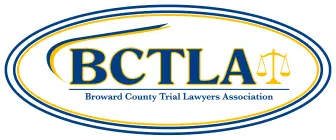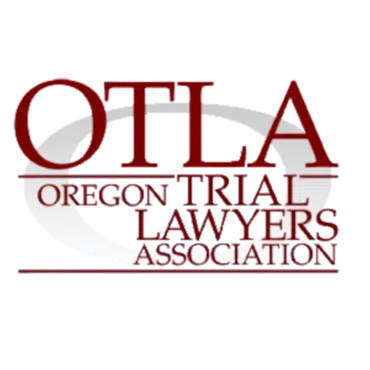
Can I lose my house due to an at-fault car accident? Yes, it’s possible under certain conditions. In this article, we will explore the question, “Can I lose my house due to an at-fault car accident?” by explaining the risks, your legal obligations, insurance limits, and steps to protect your assets. Understanding how a car accident can impact your financial situation is crucial, especially when considering the question, “Can I lose my house due to an at-fault car accident?”
Key Takeaways
- Being at fault in a car accident can lead to significant financial liability, making it crucial to understand your insurance limits and coverage.
- Homestead exemptions may protect your primary residence from being seized in lawsuits resulting from an at-fault accident; however, knowledge of your state’s laws is essential.
- Increasing your liability coverage and consulting a car accident attorney can help secure your financial future and navigate potential legal challenges after an accident.
Understanding Liability and Insurance Coverage in Car Accidents

Liability in car accidents is a cornerstone of determining who pays for the damages. When you are the at-fault driver, you are legally obligated to compensate the victims for their losses. This responsibility can lead to significant financial impacts, including medical bills, repair costs, and overall household expenses. Comparative fault also plays a role in determining financial responsibility, as it allocates the degree of fault among the parties involved in the accident.
Liability insurance plays a critical role here. It consists of bodily injury and property damage coverage and is often required by law. If you’re found at fault, your auto insurer will pay for the damages up to the policy limits. However, it’s crucial to understand that these policies have limits, and if the damages exceed these limits, you could be personally liable for the remainder.
Knowing the limits of your insurance policy is essential. These limits determine the maximum amount your insurance company will pay for damages. If the costs of an accident surpass these limits, you may face a lawsuit, putting your personal assets at risk. This section will delve deeper into what being at fault means, the role of liability insurance, and the limits of your insurance policy.
What Does Being At-Fault Mean?
Being at fault in a car accident means you are the driver responsible for causing the incident. In legal terms, this makes you liable for the damages incurred by the other parties involved. In states like Texas, which is not a no-fault state, this can mean significant financial responsibility, as you’re required to cover the victim’s losses.
The severity of the accident and the injuries sustained can greatly impact the financial consequences you face. Without adequate insurance coverage, you could be personally liable for substantial amounts, potentially reaching into your personal assets. Additionally, punitive damages can be awarded to punish the at-fault driver, increasing the financial burden.
Maintaining sufficient insurance and seeking legal help are crucial to mitigate these risks.
Liability and Comparative Fault
In the context of an at-fault car accident, understanding liability and comparative fault is crucial for determining financial responsibility. Liability refers to the legal obligation to pay for damages or injuries caused by one’s actions or negligence. Comparative fault, on the other hand, is a principle used to allocate fault among the parties involved in an accident.
In many states, including Texas, California, Florida, and Indiana, comparative fault is used to determine the percentage of liability for each party involved in a car accident. This percentage is then used to calculate the amount of damages each party is entitled to receive. For instance, if a driver is found to be 80% at fault for an accident, they will be liable for 80% of the damages. Conversely, if a driver is found to be 20% at fault, they will be entitled to receive 80% of the damages.
It’s important to note that the specific laws and regulations regarding liability and comparative fault vary from state to state. Therefore, consulting with a car accident attorney who is familiar with the laws in your state is essential to ensure you receive fair compensation for your damages. An experienced car accident attorney can help you navigate the complexities of fault determination and protect your financial interests.
The Role of Liability Insurance
Liability insurance is designed to protect you financially if you’re the at-fault driver in a car accident. It typically includes bodily injury and property damage coverage, which are often mandated by law. This means if you’re found at fault, your insurance company will cover the costs of injuries and damages up to the policy limits.
Understanding your liability insurance policy is essential. Reviewing what your insurance policy covers can help you ensure that you have adequate protection. It’s vital to know the coverage limits and ensure your policy includes sufficient protection to cover potential damages. Umbrella liability insurance can provide additional coverage beyond standard policy limits.
Always review your car insurance policy and consult with your insurance provider to understand the specifics of your coverage.
Limits of Your Insurance Policy
Your insurance policy has specific limits on how much it will pay out in case of a car accident. These limits are crucial to understand as they directly affect your financial protection. Typically, insurance policies outline maximum payouts for bodily injury per person, per accident, and for property damage.
If the damages from a car accident exceed your insurance policy limits, you could face a car accident lawsuit. This could result in significant out-of-pocket expenses and even the risk of losing personal assets to cover the remaining costs. Ensuring your policy has adequate limits is vital to protecting your financial well-being.
Legal Consequences of At-Fault Car Accidents
The legal consequences of being at fault in a car accident can be severe. Leaving the scene of an accident, for instance, can result in misdemeanor charges. It’s crucial to stay at the scene and fulfill all legal obligations, including exchanging information and waiting for the police to arrive.
Once the immediate incident is handled, the legal process can begin. This includes potential lawsuits from the accident victims if they believe their damages exceed what your insurance will cover. Engaging an auto accident lawyer early on can help you navigate these complexities, protect your assets, and create a defense strategy if you’re sued.
Homestead exemptions and asset protection are also critical considerations. In some states, these exemptions can shield your primary residence from being seized to satisfy certain debts. Understanding how these laws apply in your state can help you protect your home from the financial repercussions of an at-fault car accident and prevent situations where you might lose your house due to financial strain.
Potential Lawsuits and Legal Actions
If the damages from a car accident exceed your insurance coverage, the victims may pursue a lawsuit against you. These lawsuits typically occur when the insurance settlement doesn’t cover the expected compensation. If you lose a car accident lawsuit, you may be required to pay the injured party’s settlements, which can risk your personal assets if your coverage is insufficient.
Punitive damages can also be awarded, which aim to punish the at-fault driver and can significantly increase the financial burden of a lawsuit. It’s essential to understand the risks involved in a lawsuit and seek legal advice to navigate the legal process.
Personal Liability for Damages
Being found at fault in a car accident can lead to significant personal liability for damages. If your insurance does not fully cover the costs, you may be personally liable for the remaining amount. This could include medical bills, property damage, and other expenses that exceed your insurance policy limits. Comparative fault can influence the extent of personal liability based on the percentage of fault assigned.
Personal assets such as your house, cars, investments, and bank funds can be targeted in a lawsuit following a car accident. The extent of your liability coverage, the severity of the injuries, and the plaintiff’s decision to take legal action will influence the risk of losing your assets.
Homestead Exemptions and Asset Protection
Homestead exemptions can provide critical protection for your primary residence. These exemptions shield a homeowner’s primary residence from being seized to satisfy certain debts. In Texas, specific guidelines prevent the loss of the homestead exemption for an at-fault driver.
Understanding homestead exemptions and other asset protection strategies is crucial for protecting your home from legal claims following an at-fault car accident. By knowing your rights and the protections available, you can better safeguard your assets against potential lawsuits.
State-Specific Laws and Regulations
Each state has unique laws and regulations regarding car accidents, insurance coverage, and liability. Understanding these laws is crucial in determining the extent of financial responsibility in an at-fault car accident.
For example, in Texas, the state has clear guidelines to prevent an at-fault driver from losing their home due to a car accident lawsuit. The court’s decision will ultimately determine if your home is at risk. The liability coverage limit from your auto insurance policy plays a crucial role in determining the extent of your financial responsibility.
In California, drivers are required to carry liability coverage for personal injuries and property damage. The minimum amounts required by California law are $15,000 for bodily injury or death to one person, $30,000 for bodily injury or death to two or more people, and $5,000 for property damage. These minimums are designed to ensure that drivers have some level of financial protection in the event of an accident.
Florida operates as a no-fault state, which means that each driver’s insurance covers their own medical expenses and lost wages, regardless of who was at fault. However, drivers can still be sued if they are solely or partially responsible for a car accident, especially if the damages exceed certain thresholds.
Indiana follows a modified comparative fault system, also known as the 51% Bar Rule. Under this rule, if a party is found to be 51% or more responsible for the accident, they are ineligible for compensation. This system aims to ensure that only those who are less at fault can recover damages.
Given the variations in state laws, it is essential to consult with a car accident attorney who is familiar with the regulations in your state. An experienced attorney can help you understand your rights, navigate the legal process, and protect your assets, including your home, from potential lawsuits.
Let's Settle For More... Get Your FREE Case Review Today.
Let's Settle For More... Get Your FREE Case Review Today.
Steps to Take Immediately After an At-Fault Car Accident
Before: After an at-fault car accident, the immediate steps you take can significantly impact your legal and financial outcomes. First and foremost, ensure the safety of all drivers and passengers involved. Staying at the scene and reporting the accident to the police is not only a legal requirement but also crucial for documenting the incident.
After:
- Ensure the safety of all drivers and passengers involved.
- Stay at the scene of the accident.
- Report the accident to the police, as this is a legal requirement and crucial for documenting the incident.
Gathering evidence and information at the accident scene is the next critical step. This includes taking photos, collecting witness statements, and documenting the details of the accident.
Finally, contacting your insurance company promptly will initiate the claims process and help you navigate the aftermath of the accident.
Staying at the Scene and Reporting the Accident
It is crucial to stay at the accident scene after a car accident. This ensures that all parties are safe and that you comply with legal obligations. Leaving the scene before fulfilling these obligations can lead to serious legal consequences, including potential misdemeanor charges.
Reporting the accident to the police is also essential. A police report documents the incident and may be necessary for filing insurance claims. Ensure you provide your driver’s license and insurance information to others involved in the accident.
Gathering Evidence and Information
Collecting evidence at the accident scene is crucial for supporting your case in a potential car accident lawsuit. Take photographs of the accident scene, vehicle damage, and any visible injuries. These photos can serve as critical evidence during insurance claims and legal proceedings.
Additionally, gather contact details from witnesses who can corroborate your account of the accident. A skilled car accident lawyer can assist in gathering and organizing this evidence, which can significantly strengthen your defense and improve your chances of a favorable outcome.
Contacting Your Insurance Company
Notifying your insurance provider about the accident as soon as possible is vital for initiating the claims process, as it can complicate your claim and potentially jeopardize your coverage. Your insurance company will guide you through the process of filing a claim and help you understand the coverage your policy provides for the damages incurred.
Ensure you provide all necessary information and documentation to your insurance company to facilitate a smooth and efficient claims process. This includes the police report, photos of the accident scene, and witness statements.
Prompt and thorough communication with your insurance company can significantly affect the outcome of your claim.
How to Protect Your Home and Other Assets
Protecting your home and other assets after an at-fault car accident involves proactive measures and strategic planning. Increasing your liability coverage is one of the most effective ways to safeguard your financial resources against large claims that may exceed standard policy limits. Umbrella insurance policies can provide additional coverage beyond your primary auto insurance, offering an extra layer of protection.
Consulting with a car accident attorney can also provide valuable guidance. An experienced attorney can help you navigate the legal complexities, assess your insurance policy limits, and develop strategies to protect your assets.
Understanding and implementing these protective measures can help secure your financial future in the event of a severe accident.
Increasing Your Liability Coverage
Increasing your liability coverage is essential for protecting your assets in the event of an at-fault car accident. Higher liability coverage limits provide more financial protection against large claims that may arise from medical expenses, property damage, and legal fees. Regularly reviewing and potentially increasing your liability coverage can ensure you have adequate protection to cover potential damages.
Consult with your insurance provider to understand the options available for increasing your liability coverage. Ensuring you have sufficient coverage can significantly reduce the financial risk and protect your personal assets, including your home, from being targeted in a lawsuit.
Umbrella Insurance Policies
Umbrella insurance policies provide additional liability coverage that goes beyond the limits of your standard auto insurance. This extra coverage can be crucial in protecting your financial resources if the damages from a car accident exceed your primary insurance limits. Umbrella policies typically cover large claims, offering a safety net for significant financial exposures.
Discussing umbrella liability insurance with your insurance agent is advisable. These policies can provide peace of mind and ensure that you are well-protected against substantial claims that could otherwise jeopardize your financial stability.
Consulting with a Car Accident Attorney
Consulting with a car accident attorney is crucial immediately after an accident for legal guidance. An experienced attorney can help you understand your rights, evaluate the risks to your home and other assets, and develop a strategy to protect your interests. Legal representation can provide valuable insights and assistance throughout the recovery process, including negotiating settlements and defending against lawsuits.
If you face liability due to a severe car accident, contacting a legal team for representation is key. An attorney can use various documents, such as witness statements and photos, to reduce liability and protect your financial future. Strong legal representation during proceedings can safeguard your assets from being targeted.
The Role of Car Accident Lawyers in Protecting Your Assets
Car accident lawyers play a vital role in protecting your financial interests during legal disputes. They can help you navigate the legal complexities, gather and present evidence, and develop a strong defense strategy. An experienced car accident lawyer can negotiate settlements that avoid damaging court judgments against your assets.
Finding an experienced personal injury attorney is crucial for ensuring proper representation in an accident case. A knowledgeable attorney can guide you through the legal process. They can also assess your options and evaluate risks. Legal representation can significantly influence the outcome of a lawsuit by ensuring thorough evidence collection.
Negotiating settlements can prevent potential threats to your home resulting from a lawsuit. Settlements can resolve disputes outside of court, reducing the stress and financial burden of a lawsuit.
Involving a lawyer in negotiations helps ensure your financial interests are well protected.
Finding an Experienced Personal Injury Attorney
When seeking a personal injury attorney, it’s essential to research their experience in handling car accident cases. A knowledgeable attorney can provide the necessary guidance and representation to protect your interests and assets during the legal process.
Look for an attorney with a proven track record of successful case outcomes and positive client testimonials. Ensuring you have experienced car accident attorneys on your side can make a significant difference in the outcome of your car accident case.
Legal Representation in Lawsuits
Having a personal injury attorney for legal representation can significantly influence the outcome of a lawsuit. An experienced attorney can ensure thorough evidence collection, present a strong defense, and navigate the legal complexities on your behalf. Having legal counsel can provide peace of mind and increase your chances of a favorable outcome in a car accident lawsuit.
Seek legal advice early in the process to understand your rights and options. An attorney can help you develop a defense strategy, gather necessary evidence, and represent you in court if needed.
Legal representation is crucial for protecting your financial interests and assets.
Negotiating Settlements
Negotiating settlements can be an effective way to resolve disputes and protect your assets from being targeted in a lawsuit. Settlements allow you to avoid the stress and financial burden of a lengthy court battle. An experienced attorney can help you negotiate favorable settlements that safeguard your financial interests.
Involving a lawyer in the negotiation process ensures that your rights are protected and that you achieve the best possible outcome. Settlements can prevent potential threats to your home and other assets, providing a more secure financial future.
Frequently Asked Questions
What does being at fault mean legally?
Being at fault legally signifies that you are the driver responsible for causing the accident, making you liable to compensate the victims for their damages.
How does liability insurance protect me?
Liability insurance provides financial protection by covering costs associated with bodily injury and property damage, allowing you to avoid significant out-of-pocket expenses. This coverage is essential for safeguarding your assets and peace of mind.
What should I do immediately after an at-fault car accident?
Immediately after an at-fault car accident, prioritize safety, stay on the scene, report the incident to the police, gather evidence, and contact your insurance company to start the claims process. Taking these steps will help protect your interests and ensure proper handling of the situation.
How can a car accident lawyer help protect my assets?
A car accident lawyer can effectively protect your assets by offering legal guidance, representing you in negotiations or court, and developing strategies aimed at safeguarding your financial interests. Their expertise ensures that your rights and assets are prioritized throughout the legal process.
Last updated Thursday, September 4th, 2025









